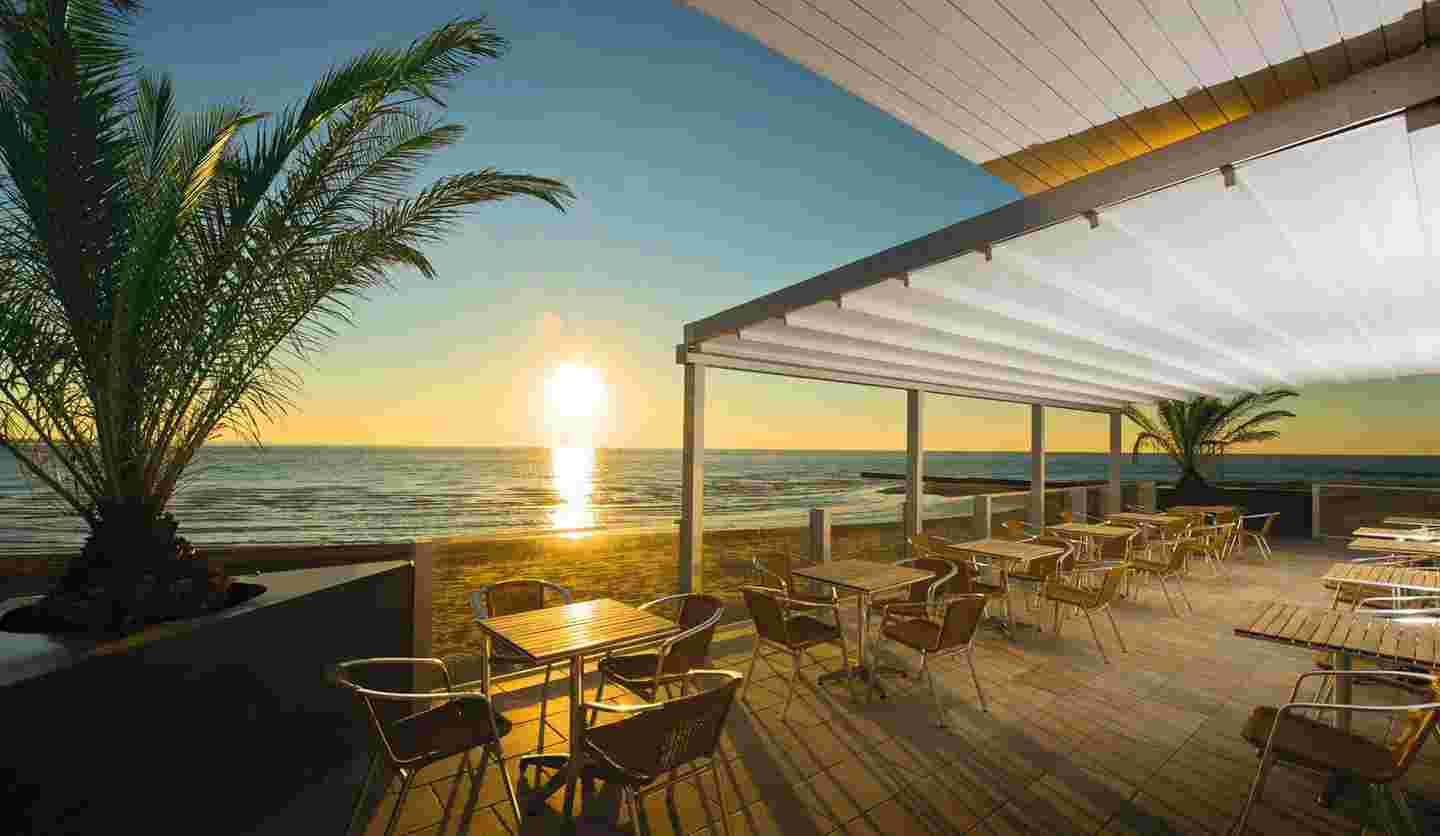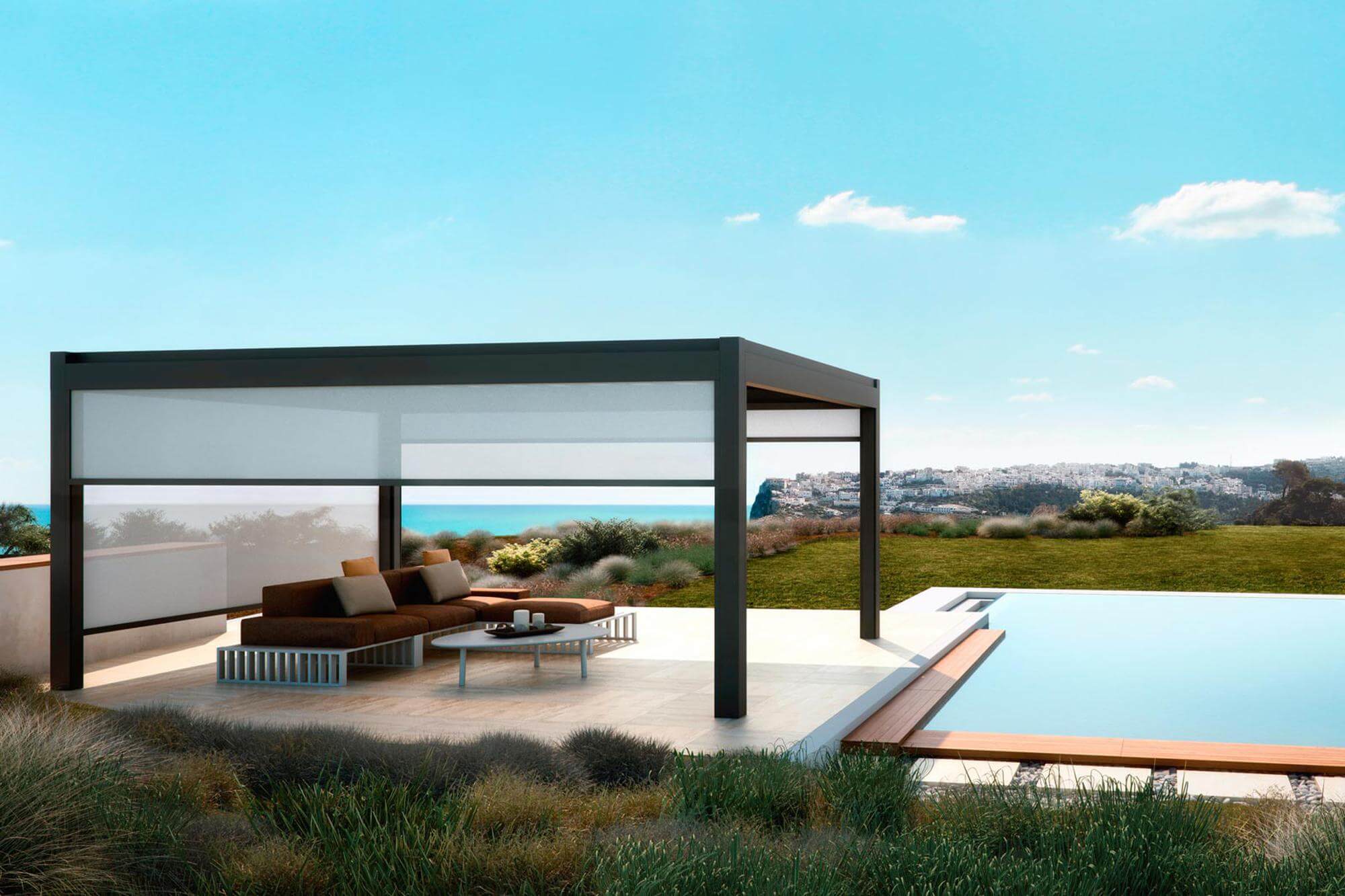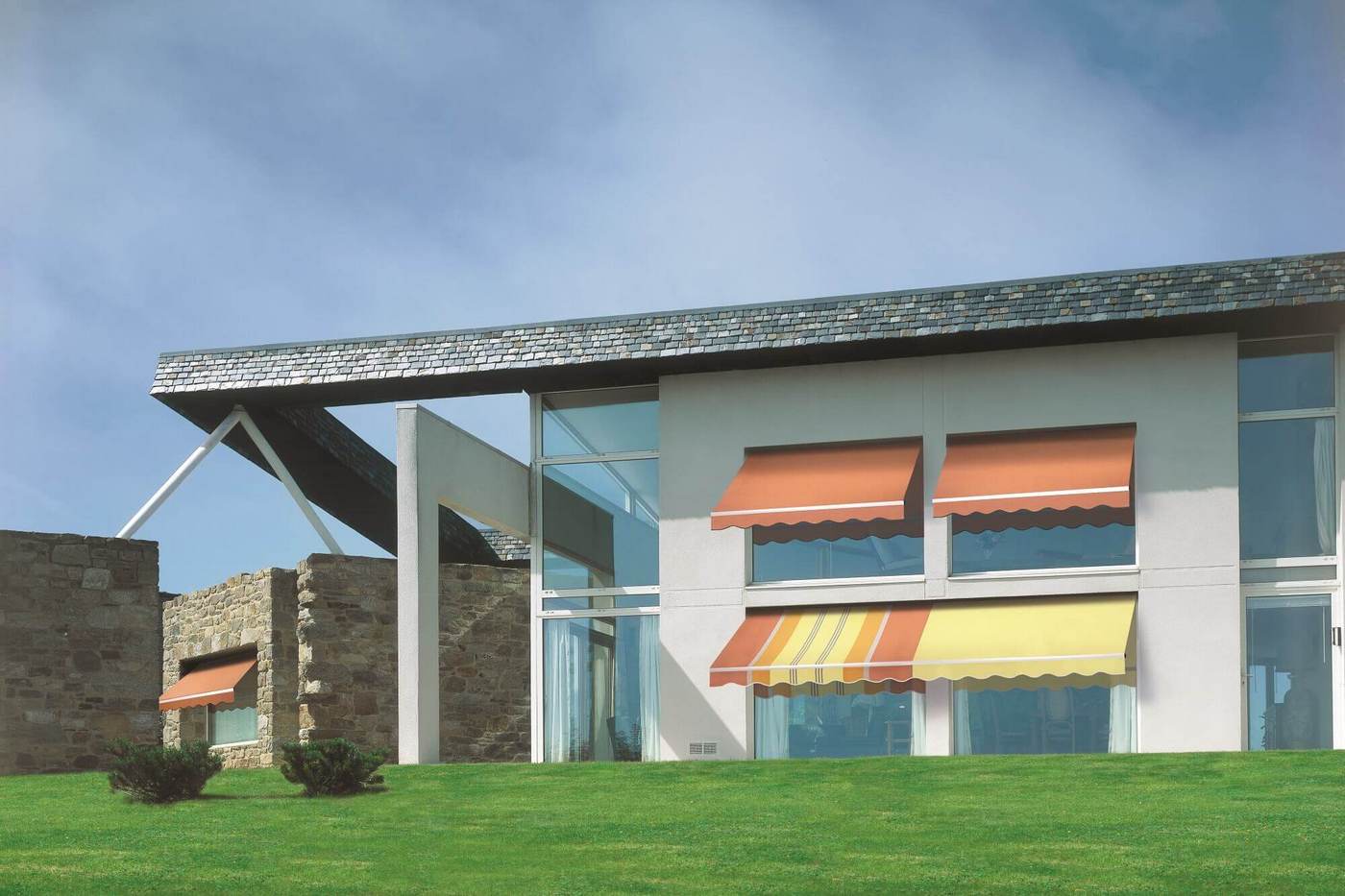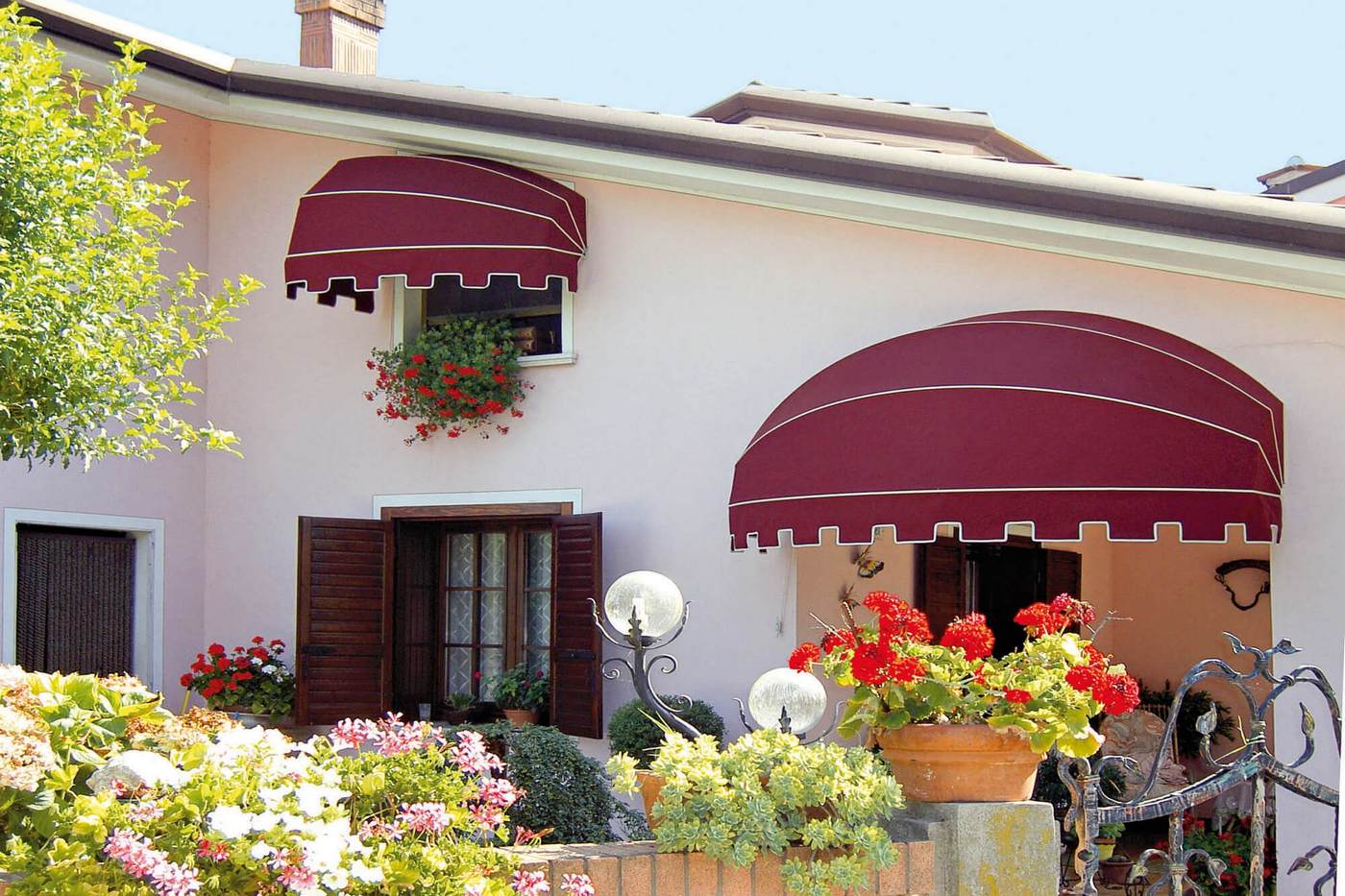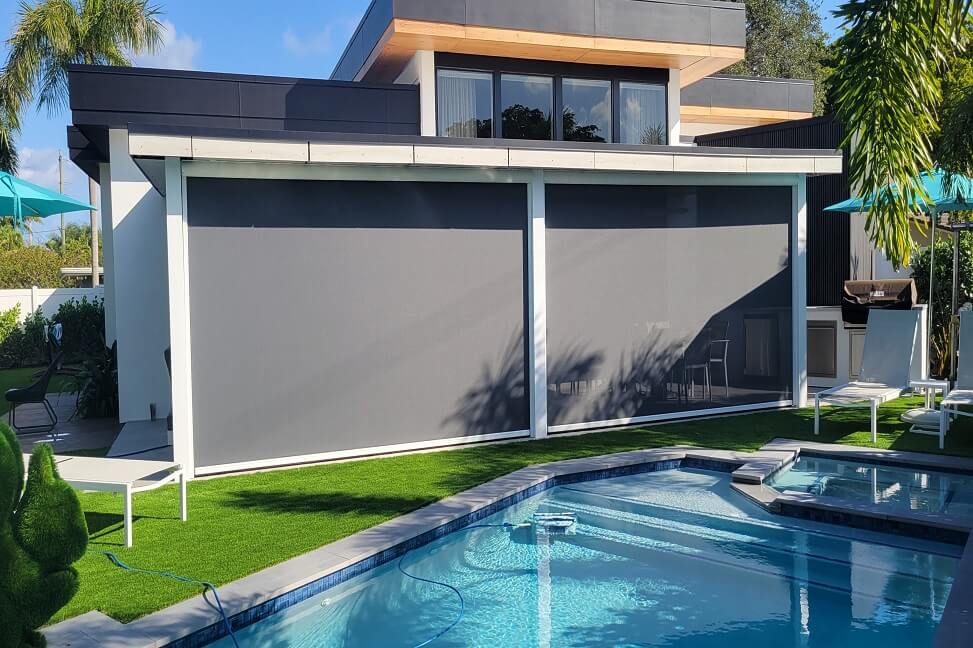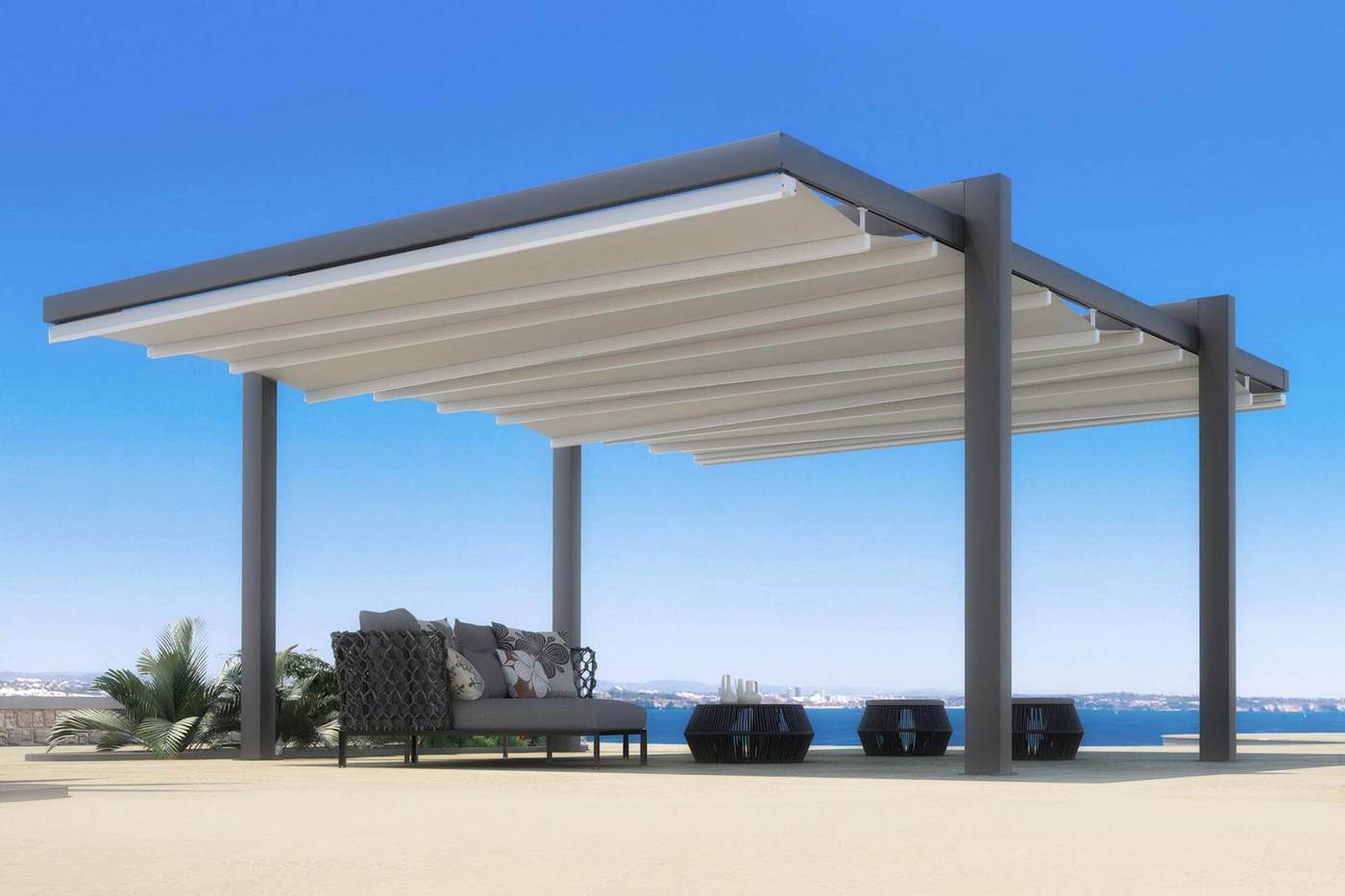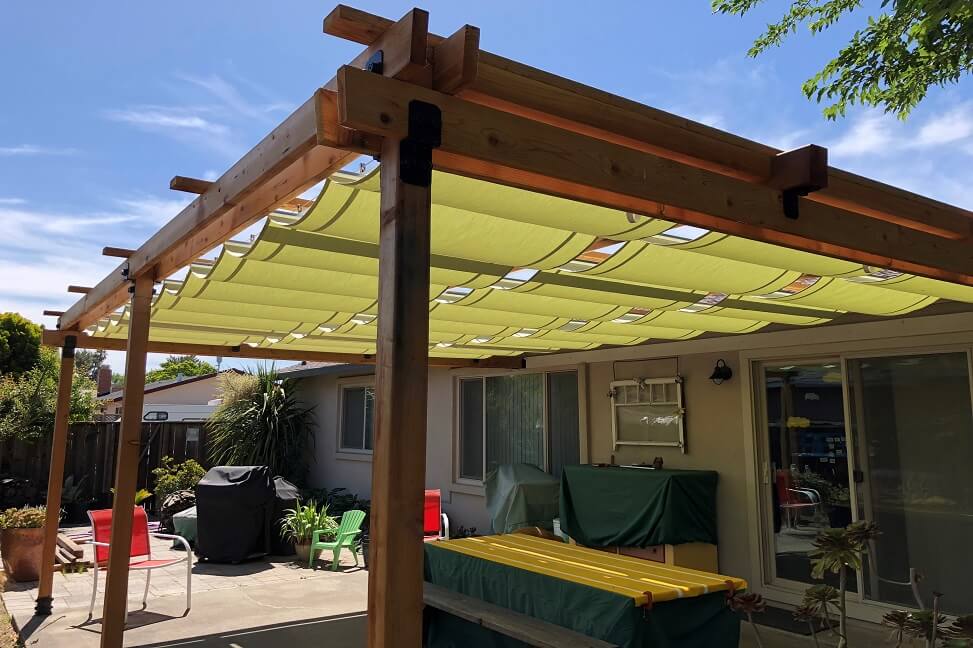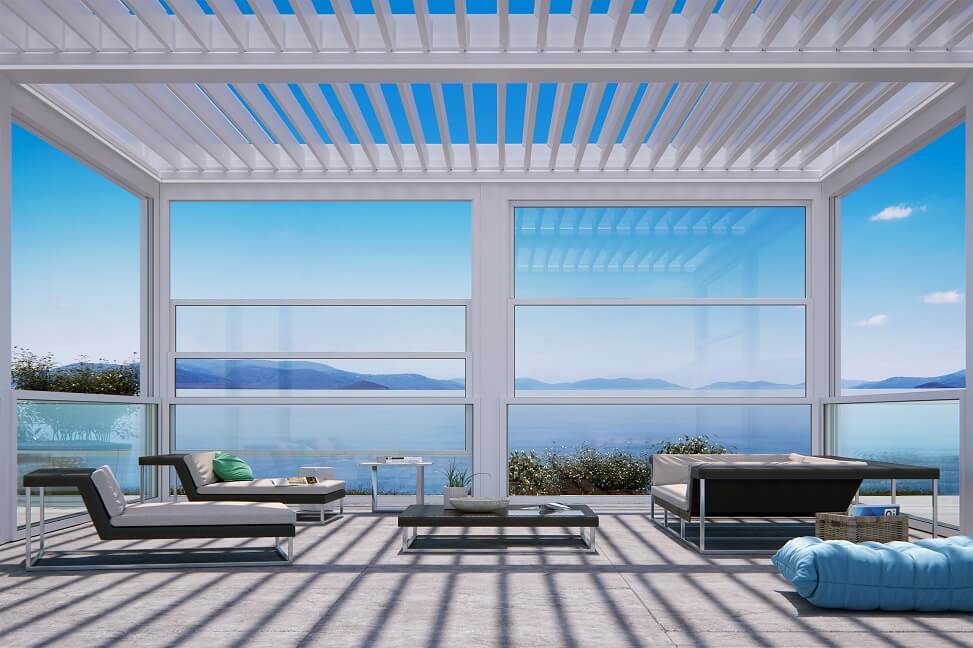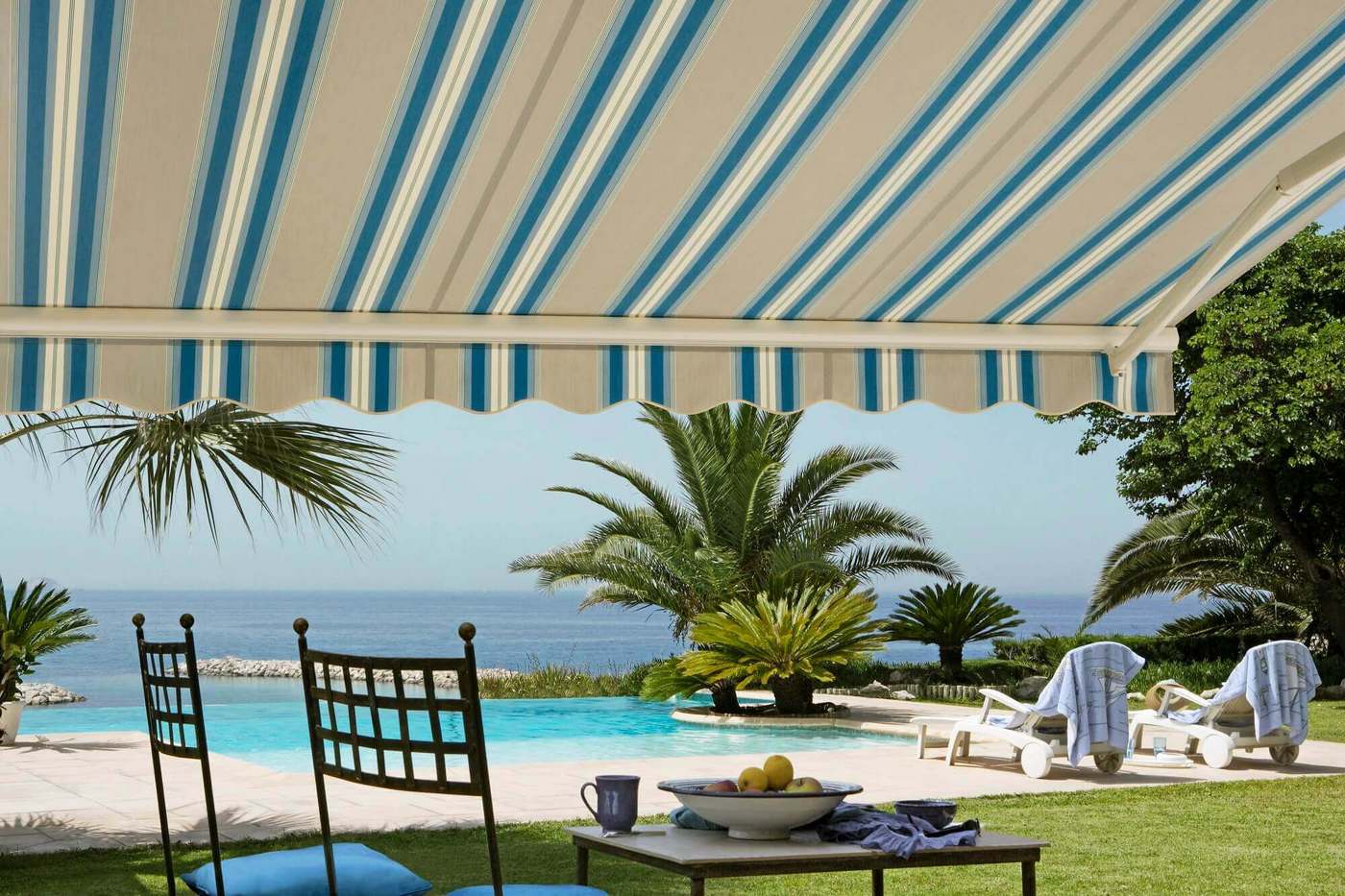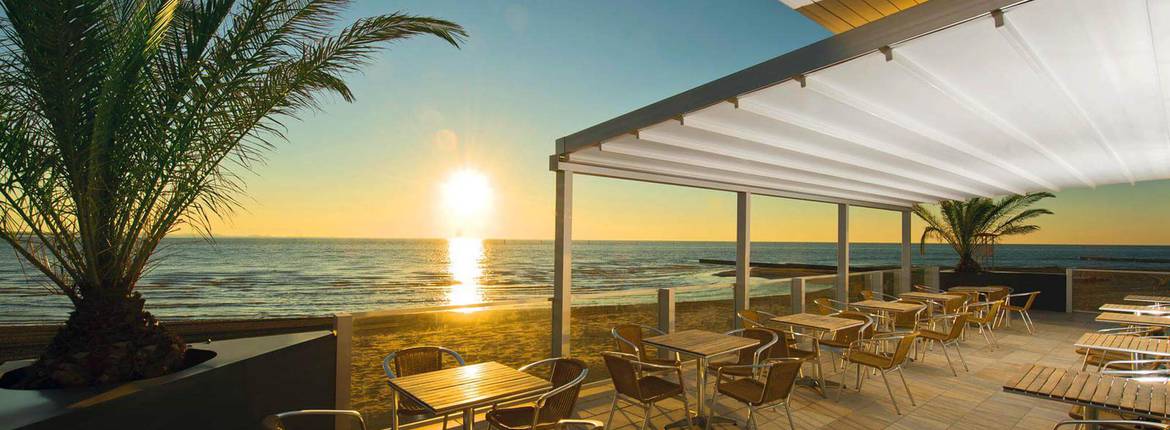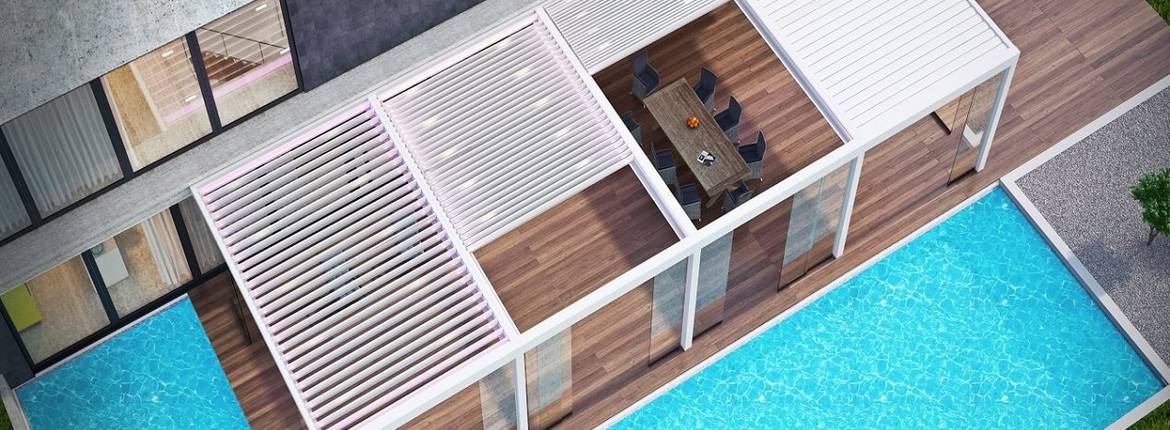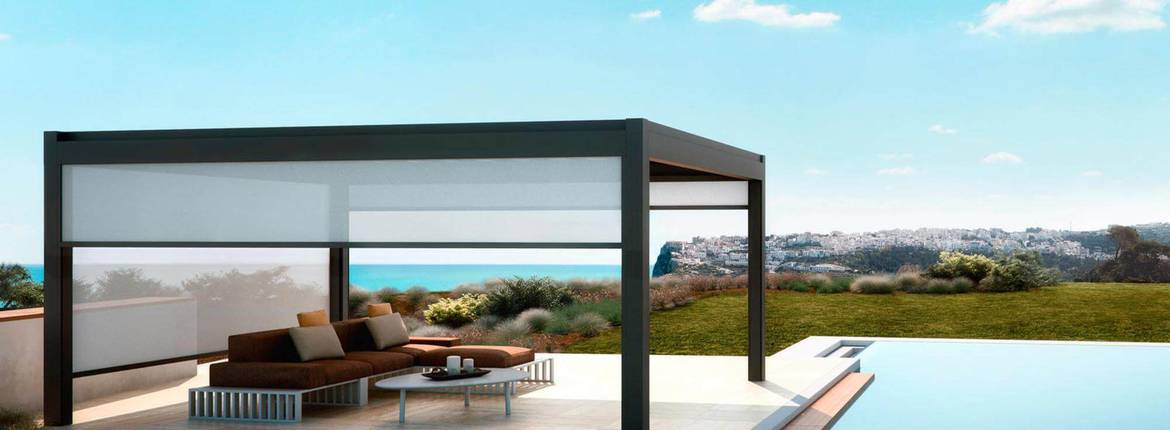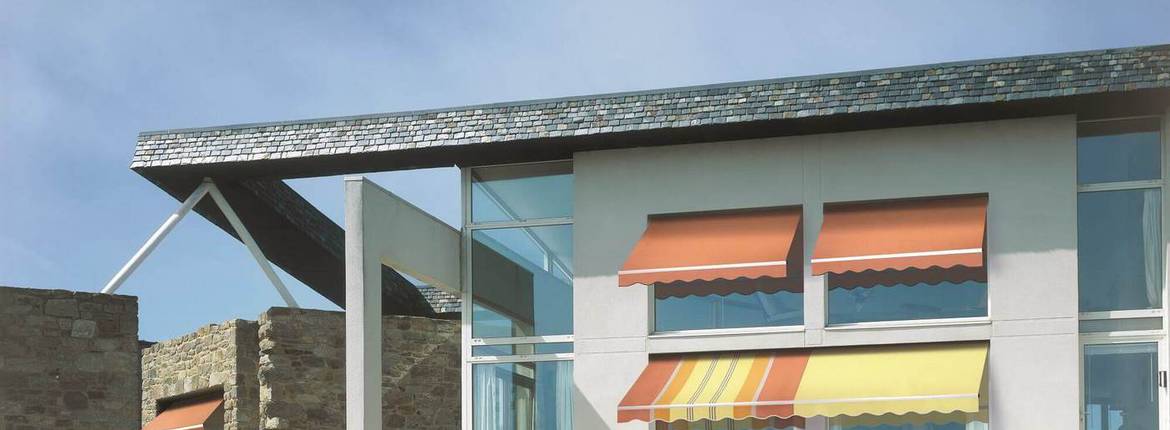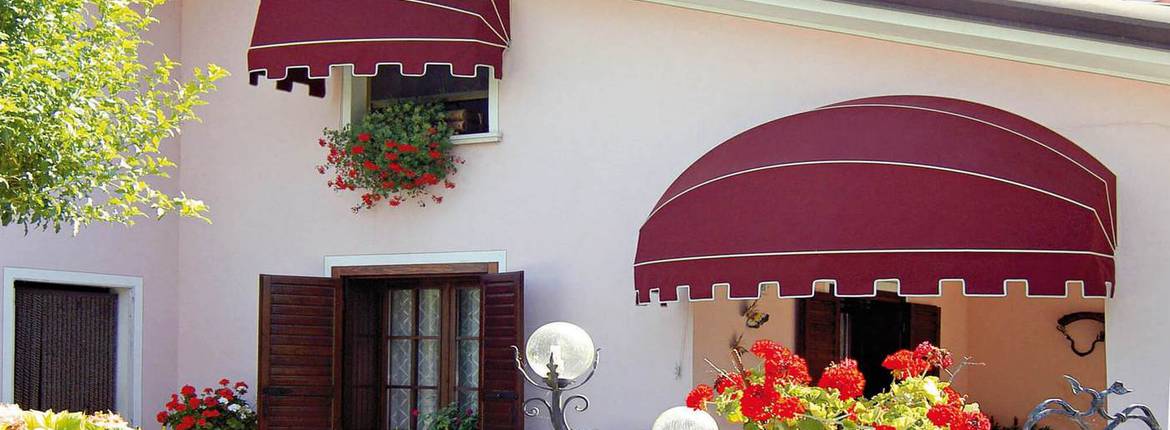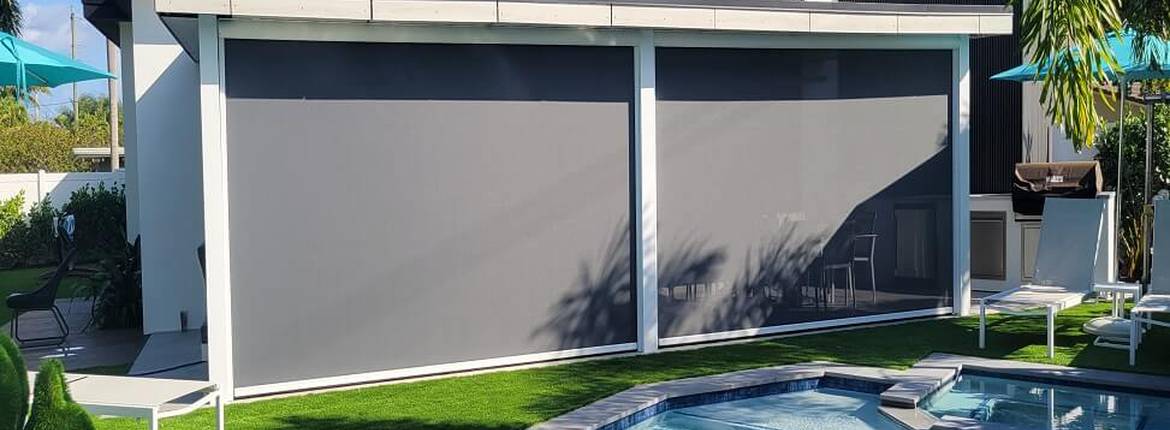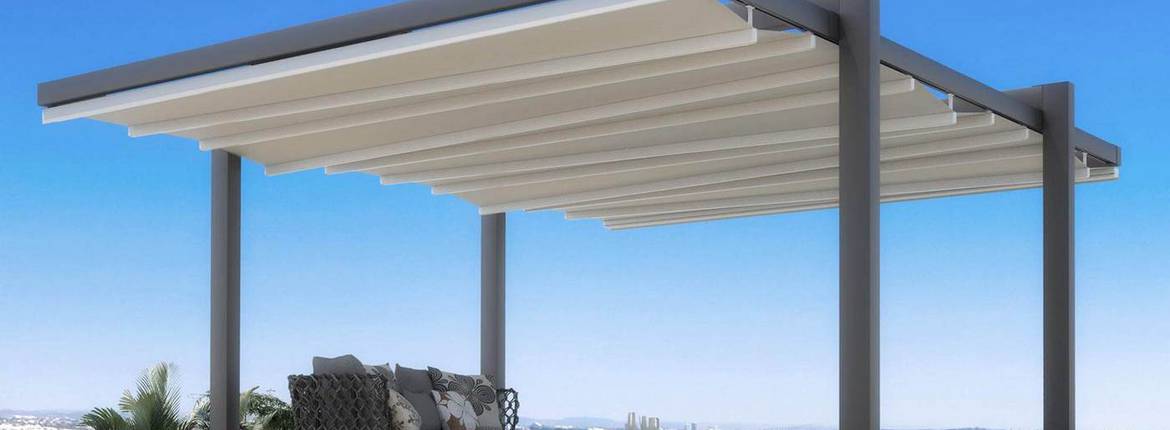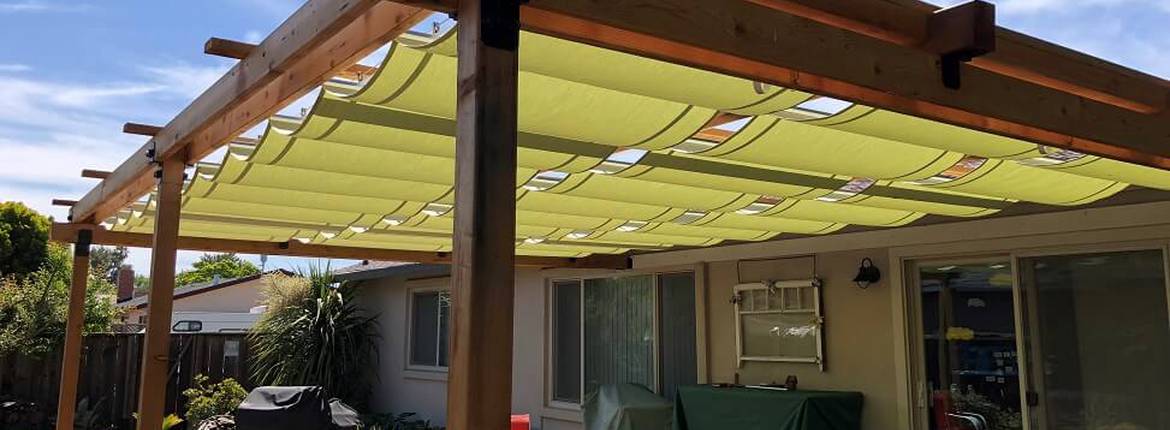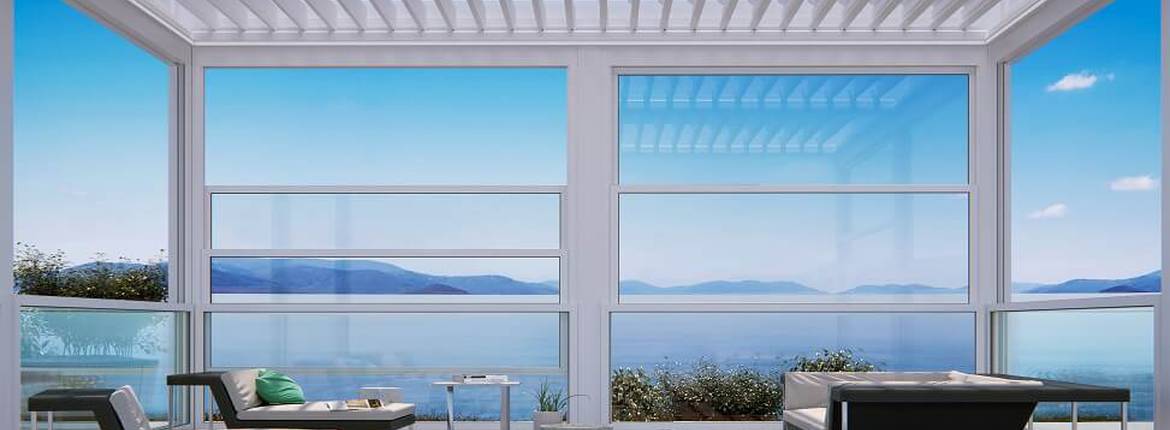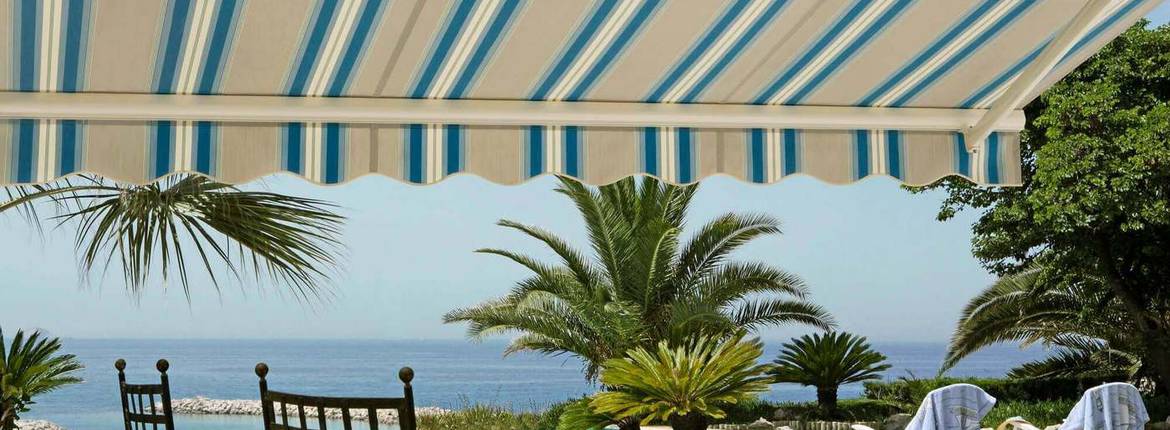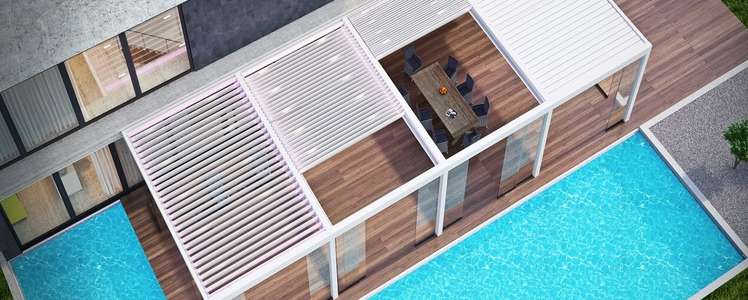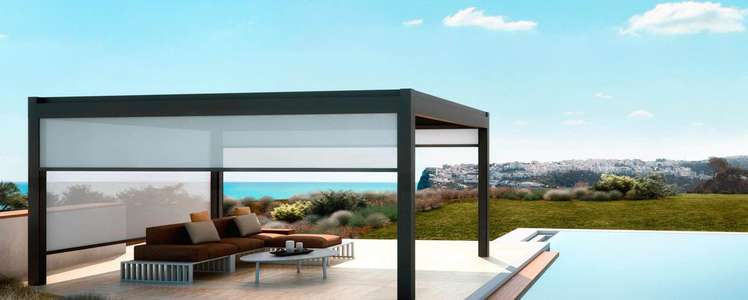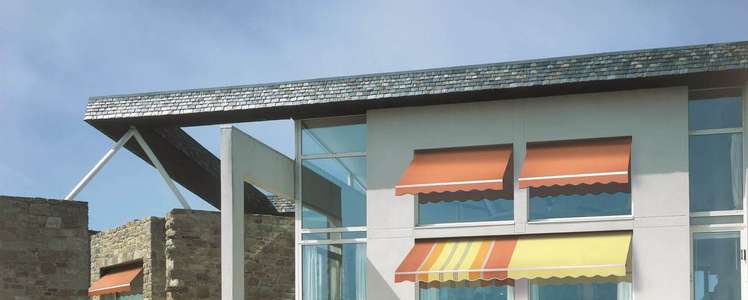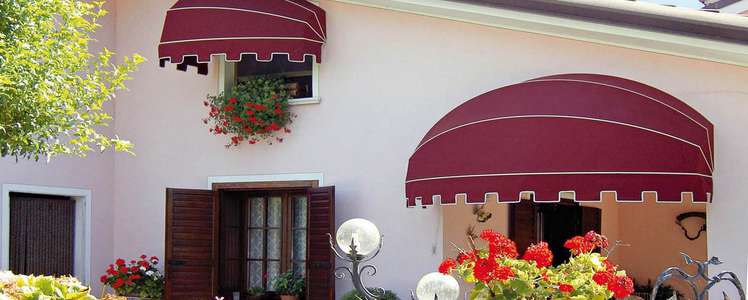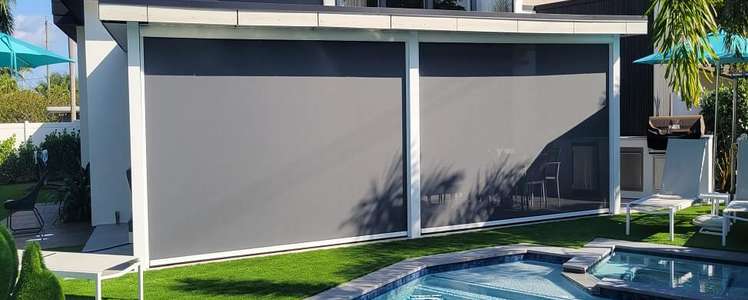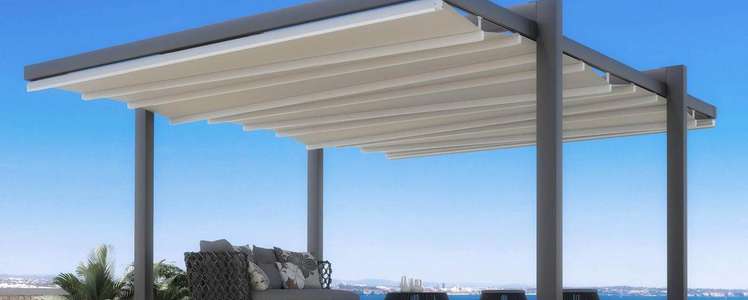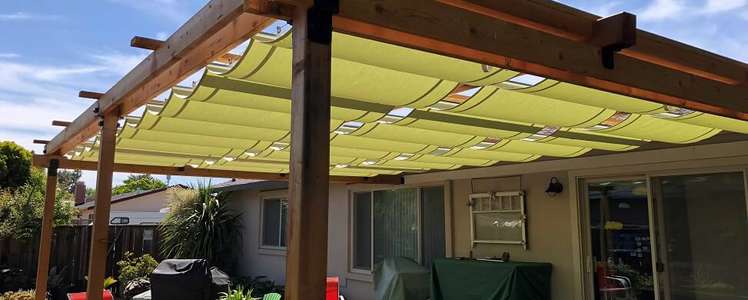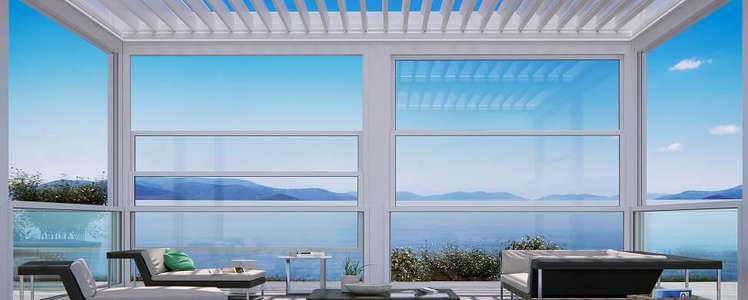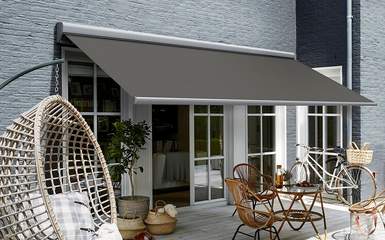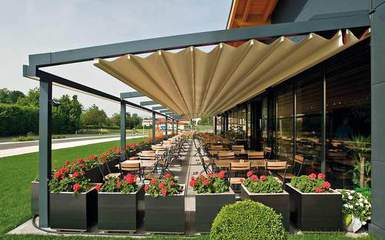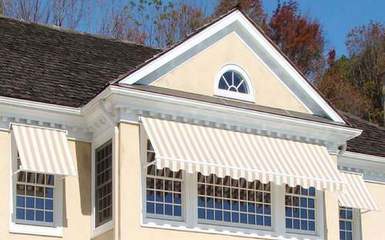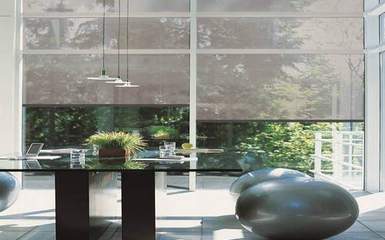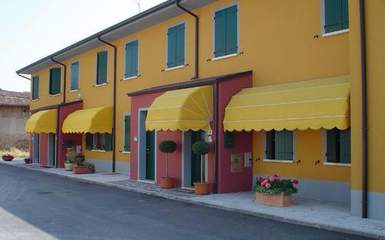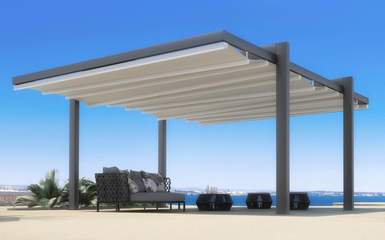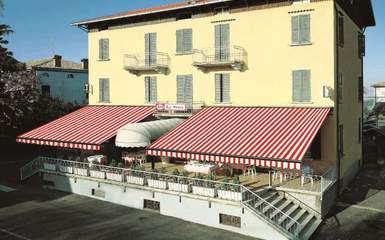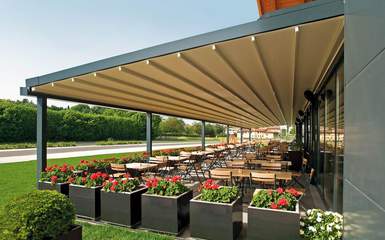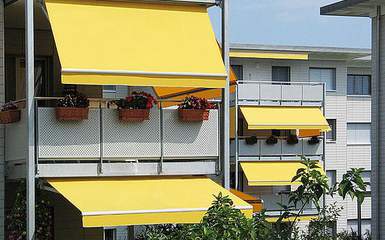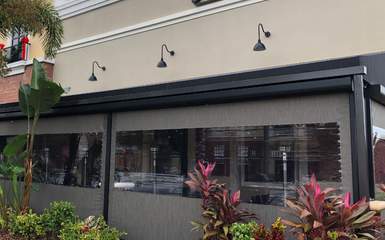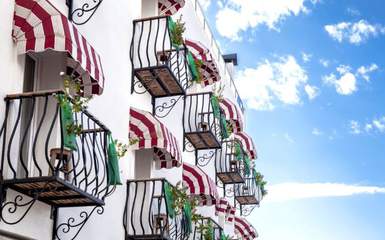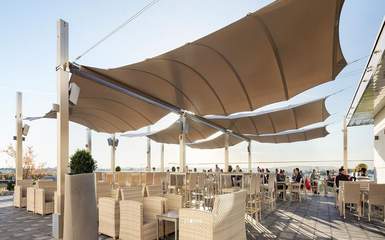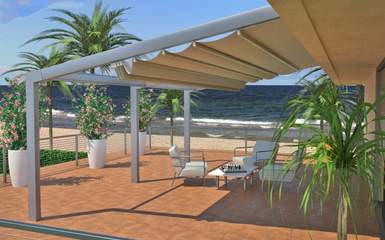Awnings are an excellent investment. Whether you think of buying commercial awnings for your business or a stylish pergola for your backyard, you can rest assured that it will be money well spent. The only question is, how to choose the right custom awning?
In this case, you need to ask yourself a few questions regarding your needs. Specifically about the purpose of your custom awnings, their design, material, type (retractable or fixed, manual or motorized), and costs.
Indeed, that looks like many things to consider for a simple thing like a custom awning. Trust us, though. You’ll save yourself a lot of time and trouble later if you think about all this carefully before the purchase. This is why at Retractable Awnings, we’ve created this custom awning selector to ensure our customers can find exactly what they’re looking for in an instant.
With a bit of help from this guide and our tool, you are bound to find the best possible awning, be it a commercial or residential one.
Decide on the Purpose of Your Custom Awning
First, you need to decide why do you even need an awning. Deciding on its purpose is the core of your decision-making process, as every other choice will be based on this one call. In general, the purpose of getting an awning can vary depending on whether you opt for a commercial or residential one.
As for commercial custom awnings, your goal might be to provide shade and heavy rain protection for your clients, create additional covered space to sell your products, or make your business’s storefront more visible through an eye-catching awning. Then, of course, you need to decide on how much space your awning should cover, as it will determine its size and overall costs.
For instance, if you want to use an awning to provide your customers with sun, heavy rain, hail and snow protection, your custom awning should cover more space and you will need the highest quality.
Now, when it comes to residential awnings, your primary concern should be what type of space it should cover. Do you want your custom awnings to be closer to your windows, providing window(s) sun/UV protection only, or do you want to provide more shade to an open backyard space and therefore protect both the window(s) and the patio/deck area? Answering these questions will help you determine the size, type, and material of your custom awnings. It will also determine where and how the awning should be installed.
Consider External Factors
Numerous external factors can impact your final call regarding custom awnings. Essentially, it comes down to the main two - weather and local regulations. Let’s deal with the weather first.
For instance, if you live in an area where heavy rain and snow are not an abnormality, you should opt for reliability and durability from an awning. The material and frame structure should be waterproof and ready to withstand difficult conditions. Also, when weather conditions can be difficult, you should be able to retract your awnings so that they don’t get damaged.
As for local regulations, you need to ensure your awnings meet your city’s or town’s laws. For example, some municipalities may have dedicated regulations regarding commercial buildings, which will impact the size, type, color, and overall appearance of your custom awnings. These regulations, however, most likely only apply to commercial awnings, so be sure to check them out.
Pick the Right Awning Type
The next thing to consider is the type of custom awning. When it comes to that, you have two options. You can either opt for fixed or retractable awning. The main difference between the two is that fixed awnings cannot be, well, retracted, whereas retractable can be unrolled and retracted freely. There’s more to it, though.
Let’s deal with fixed awnings first. As mentioned, they are the ones you can’t retract or take down temporarily. Once installed, there’s not much you can do about them in terms of adjustments. This can be considered a disadvantage, as it makes them less flexible. On the other hand, they may require less maintenance and may be sturdier depending on the structural engineering. You can consider fixed custom awnings for smaller spaces, especially for commercial purposes.
Retractable awnings, on the other hand, can be easily retracted and adjusted to your current needs and weather. They are ideal for larger spaces and more flexible than fixed awnings, which is a massive advantage. The fact that they can operate using a high quality mechanism makes them less prone to issues and damage, requiring less maintenance and less repairs. In general, retractable custom awnings will work great for residential, commercial, institutional or industrial needs.
Now, if you opt for retractable awnings, you also need to decide whether you want manual or motorized. The difference between them is in the name, with manual awnings being operated manually using a detachable hand crank and motorized utilizing an electric motor system in either 110v or 220v operated via a remote, wall switch, timer, smartphone or tablet. Manual awnings are cheaper but less convenient, whereas motorized ones are more expensive but offer ease of use manual ones simply can’t match. Research by Somfy, the largest tubular motor manufacturer in the world, shows that a retractable awning owner is 4x more likely to use the awning if it is electrically operated by a motor rather than manually operated by a crank.
Think About the Material
Another thing to think about is your custom awning material, both when it comes to fabric and frame. When talking about fabric, you can opt for vinyl and polyester composite, cotton blend canvas, and solution-dyed acrylic fabric. As for the frame, the main two types are aluminum and wooden. Let’s take a closer look at both considerations, starting with fabric.
As mentioned, there are three primary options to choose from. Here’s how they differ:
-
Vinyl and polyester composite: It has gained quite a popularity recently, offering durability and reliability at an acceptable price. Its key properties include water and fire resistance (many but not all). A negative is the fact this fabric is more prone to fading due to sunlight exposure.
-
Cotton blend canvas: Its core advantage is classic apparel, so if the design is your primary concern, this fabric will work fine. However, keep in mind that the cotton blend is less durable and more prone to damages than vinyl and polyester composite. It also requires regular maintenance and cleaning, which can be considered a con if you don’t have much time to spare.
-
Acrylic fabric: Awnings made of solution-dyed acrylic fabric work brilliantly in hot and humid zones, as they are well-known for their anti-rot, mildew and UV rays resistance. Other than that, they are pretty similar to vinyl and polyester composite, and considered more durable.
When it comes to frames, your options are more limited as you can opt either for wooden or aluminum awning frames. Long story short, wooden frames are more sturdy and better looking, although heavier to install and require more maintenance. Aluminum ones, on the other hand, are more durable, lightweight, and don’t require that much attention.
Choose the Style and Color of Your Custom Awning
The next thing on the list is the style and color of your custom awning. Again, your decision here will mostly depend on the purpose of your awning. For instance, when buying commercial awnings, you’ll have to, firstly, pick the color and style that will suit your business best (preferably eye-catching) and secondly, the design that will meet the potential local architectural requirements.
When it comes to residential custom awnings, the case is much less complicated. All you need to think about is whether the color and style of your awning match the overall home design. Of course, practicality is also essential, but with the wide range of various awnings available at Retractable Awnings, you will easily find something that will meet all your needs.
Consider the Costs
Last but not least, there are all the costs involved in buying, installing, and maintaining custom awnings. These will differ depending on multiple factors, such as the size of the awning, its type, and material.
For example, if you require a durable retractable awning that will cover a significant space, you can be sure that it won’t be a cheap venture. On the other hand, awnings made of high-quality materials require much less maintenance as they are less prone to damages, cracks, and other issues related to weather or extensive usage.
There are also installation costs that can vary depending on where and how difficult it is to install an awning. In a nutshell, tons of factors come into play when estimating the overall costs of getting a custom awning. That is why it’s so challenging to calculate everything yourself.
The best idea here is to contact us here at Retractable Awnings. With 36 years of experience, we know all the ins and outs of the industry. Get in touch with us today, and let us help you choose custom awnings that will serve you for many years to come!
Final Word on Custom Awnings
Although there are plenty of things you ought to consider before choosing your custom awnings, the final result will be worth your time. Also, remember that thinking thoroughly about everything mentioned above will save you trouble in the long run.
However, while taking some time to analyze everything now is recommended, you can speed things up using our custom awning configurator mentioned in the introduction. With it, you’ll be able to choose the best awning possible and save yourself tons of time. And if you have any further questions regarding custom awnings, our team will be more than happy to help.
Contact our European factory trained, experienced retractable residential and commercial awning, pergola, screen and canopy experts using our contact form, our live help chat or call us in the USA or Canada toll-free at (866) 438-2964 or outside the USA or Canada at (305) 628-2424.
![Folding Arm Awnings Folding Canopies]()
![Retractable Pergola Covers Awnings]()
![Retractable Drop Arm Awnings]()
![Retractable Patio Screens and Vertical Drop Awnings]()
![Retractable Window Awnings]()
![Retractable Free Standing Awnings and Canopies]()
![Retractable Lateral Arm Awnings]()
![Retractable Pergola Roof Covers]()
![Retractable Side Arm | Drop Arm Awnings]()
![Power Retractable Screens]()
![Retractable Canopies for Commercial Buildings]()
